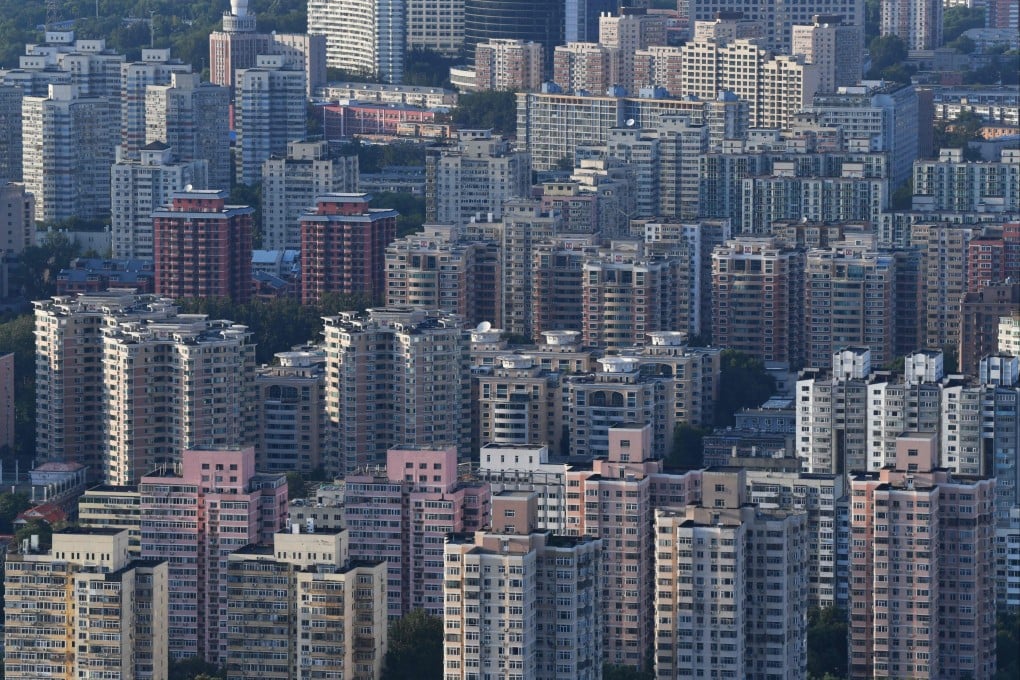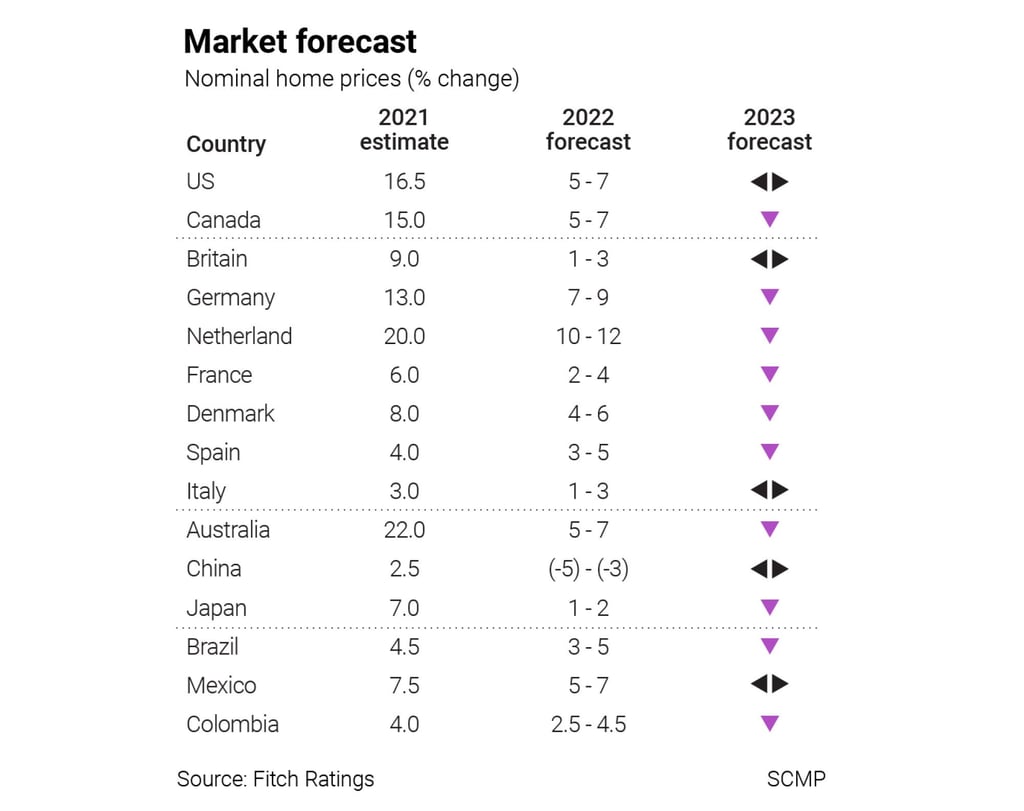Mainland Chinese house prices expected to fall in 2022 as rest of world sees growth
- Housing shortages, moderate mortgage rates and rising construction costs are seen boosting home prices globally
- In China, the government is likely to implement even stricter measures to tame the property market, say analysts

Home prices are likely to grow in major markets across the globe in the coming year, according to property analysts.
Home prices were estimated to have grown 2.5 per cent this year.
“Unlike the other countries in this report, China’s housing market is expected to face headwinds in both 2022 and 2023 and to experience falling home prices that mark a reversal of recent momentum,” the Fitch report said. “While we expect the authorities to intervene to contain market volatility, downside risks are substantial.”

Beijing has cracked down hard on the risky borrowing activities of property developers. It introduced its “three red lines” in 2020 – a set of metrics against which a developer’s corporate debt is evaluated, a move intended to improve the sector’s financial health.